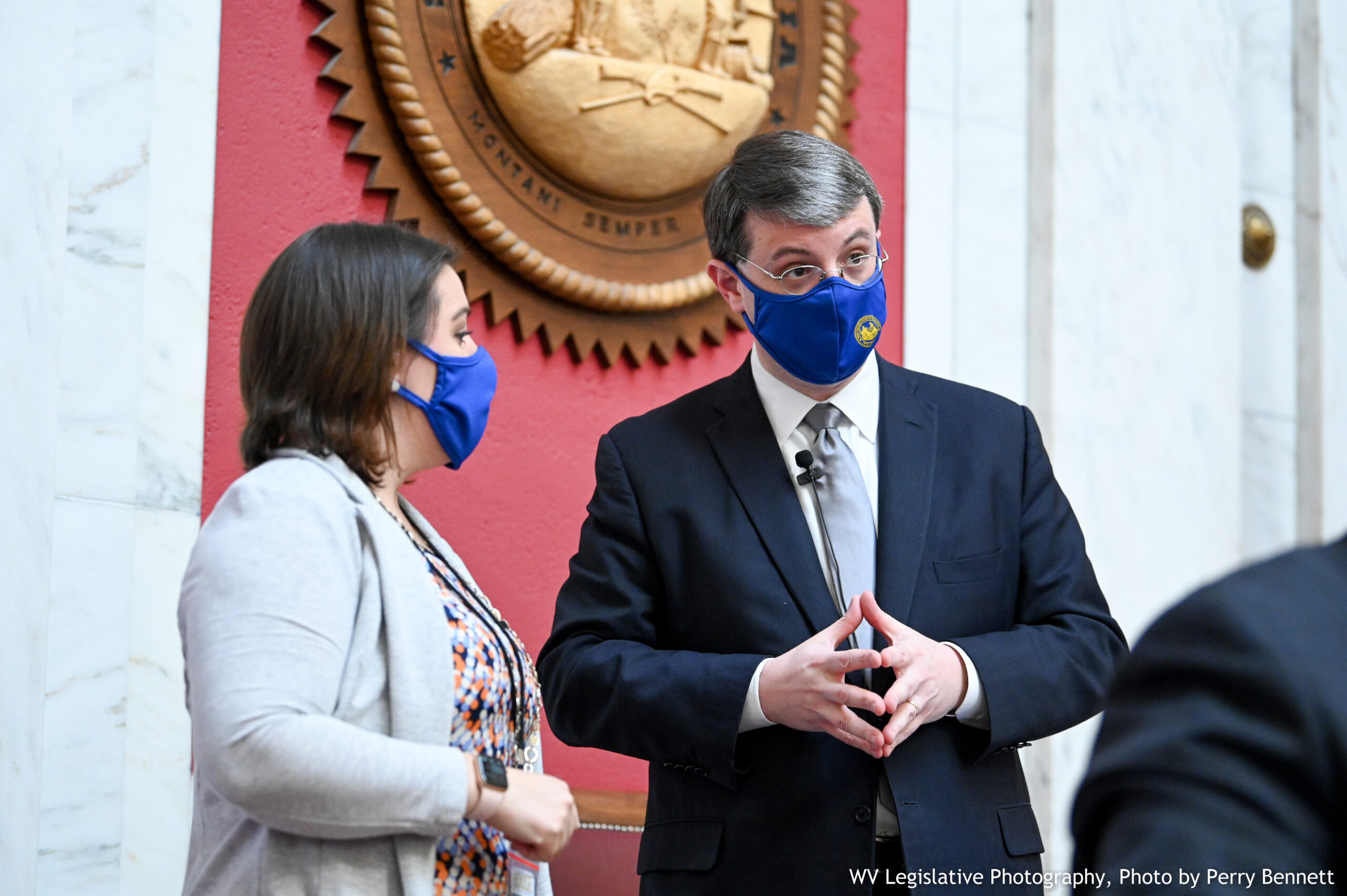MORGANTOWN – The House of Delegates agreed to a final tweak in the Senate teacher strike bill and sent it to the governor, then debated a string of amendments to the Hope Scholarship bill it had already passed once and passed it again.
At the other end of the Capitol, the Senate approved the bill dictating the selection and conduct of delegates to an Article V constitutional convention.
The teacher strike bill is SB 11. It codifies that public employee strikes are illegal and grounds for termination, and says teachers and service personnel won’t get paid for the time they’re participating in an illegal strike, among other things.
Hope Scholarship
The House passed it 53-46 Tuesday and sent it back to the Senate, which returned it to the House Thursday for concurrence on a title amendment. The House concurred and re-passed it, 55-44, and it will head to the governor.
HB 2013 establishes the Hope Scholarship program for state-funded education savings accounts (ESAs). It will begin as a way to allow public school students to transfer to a private school or be home-schooled. The estimated per-pupil scholarship of $4,600 (a flexible figure based on average state aid/per pupil) could be used for a variety of specified educational expenses.
Beginning in 2026, all students in private and home schools would be eligible for the scholarship if total participation is less than 5% of statewide student enrollment.
The House passed it Feb. 18 but sent it back to the Finance Committee the next day after learning that a loophole could unintentionally escalate the initial cost from $23 million to $112.3 million.
Democratic delegates offered several amendments, some of them similar to amendments rejected the first time around. All fell in roll-call votes.
One would have made whole any county board that saw a net funding drop exceeding 2%. The GOP argument against it was that it would make no sense to fund public schools for students who are no longer in the system. Additionally, the county would lose only its state funding, not any federal or local funding, which could be about $8,000 per student.
Another proposed an income cap of $75,000 for a single parent and $150,000 for a couple filing jointly. An amendment the first time around proposed caps of $50,000 and $100,000. The arguments against were again that it might penalize a single mom with multiple kids, and it could punish kids based on parental income.
Other failed amendments called for annual audits of 5% of Hope Scholarship account, mandated family reporting of any account spending, and specific prohibitions on discrimination based on race, sex, sexual orientation, religion or disability.
Delegate Larry Rowe, D-Kanawha, again opposed the bill, saying it’s too generous and too much money will come out of school systems. And it will become an entitlement.
Delegate Paul Espinosa, R-Jefferson, and Education chair Joe Ellington, R-Mercer, responded by noting other states allot more to ESAs, with the national average being $10,349. Even Mississippi provides more, at $5,616 per student.
Delegate Lisa Zukoff, D-Marshall, said 12 counties have no private or parochial schools and those kids won’t have the same opportunities; the bill separates the haves from the have-nots, she said.
And Delegate Brent Boggs, D-Braxton, worried the bill is a first shot in the effort to defund the public school system.
Also, he said, there’s nothing to prevent sending students to out-of-state private schools and the scholarship board has no oversight. He fears the bill could lead to school closures and consolidations.
Ellington said the state is obliged to provide a free and efficient education to its students – about 300,000 right now – and this gives opportunities to some who aren’t finding success in the public schools.
“We fund education. This is one form of giving state appropriation to allow students to try something different,” he said. The goal is not to hurt the public school system, he added.
Last time, HB 2013 passed 60-39; this time it passed 57-42. Three more Republicans, including Speaker Roger Hanshaw, crossed over.
Article V bill
SB 332 lays out the guidelines for how delegates operate at an Article V constitutional convention, which could be called when two thirds of the 50 states apply to Congress for a convention to propose amendments.
The bill says delegates may only attend a convention where each state has one equal vote; no delegate may attend a convention requiring proportional representation based on population.
Delegates must take an oath that includes a sentence intended to keep them from participating in what’s termed a “runaway convention,” where all sorts of unexpected amendments are considered: “I will not vote to allow consideration of or to approve any unauthorized amendment.”
Delegates casting an unauthorized vote will be recalled and may be replaced. Violating the oath would be a felony carrying a fine of $100,000 to $500,000, and a prison term up to 10 years.
Sen. Mike Romano, D-Harrison, said again he has no problem with amending the U.S. Constitution to impose congressional term limits or mandate a balanced federal budget. But this kind of convention isn’t the right way to go about it because there are no limits imposed on it in the Constitution.
And despite good intentions, he said, this bill will be toothless. “It gives false security to those who would vote for an Article V convention. … Ladies and gentlemen, we’re playing with fire here.”
Sen. John Unger, D-Berkeley, was concerned the bill could infringe on the free-speech rights of delegates by restricting what they can talk about at the convention.
Judiciary chair Charles Trump, R-Morgan, countered that the bill would dictate how the delegates vote, and they would be appointed to be the voice of the state, in much the same manner as the votes of presidential electors are dictated.
The bill passed 21-11 on party lines. It goes to the House.
TWEET David Beard@dbeardtdp
EMAIL dbeard@dominionpost.com




